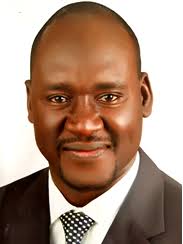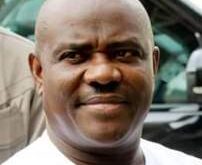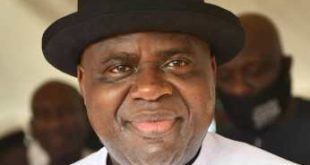… Demands Transparency in Defence Budgeting
By Godwin Chukwumaechi, Port Harcourt
The Civil Society Legislative Advocacy Centre (CISLAC) has demanded more transparency and accountability in defence budgeting in Nigeria, condemning the opaque and vague type of budgeting in the sector.
The centre last week, inaugurated the coordination meeting of the steering committee on transparency and accountability in defence budgeting.
The steering committee consists of civil society organisations (CSOs), the media and relevant ministries, departments and agencies (MDAs) in the sector, and is aimed at ensuring shared knowledge and expertise to achieve the goal of the project which is to reduce and subsequently curb corruption in the defence sector.
Speaking in Port Harcourt at the inauguration of the committee, Hadiza Kangiwa, board member, CISLAC, who represented Auwal Ibrahim Musa (Rafsanjani), the executive director of the centre, said the setting up of the committee was made important by the “need for coordinated approach, the need to share and exchange ideas, develop strategies,” adding that “it’s very important for each of the stakeholders to know what others are doing”.
The ED said; “If you look at the programme, it entails audit, advocacy, monitoring. Members are expected to come together to gauge their performance and look out for what they have been doing well and what they have not done well and how to improve.
“CISLAC has come a long way and has been able to make it possible for stakeholders in the defence sector to begin to look at what the civil society groups are saying. Before, the attitude was why are they pocking nose into matters that do not concern them?
“We expect that at the end there will be more coordinated efforts and collaboration among partners. It will be better for everyone involved and there will be more understanding from the part of government and other stakeholders”.
According to Bertha Ogbimi, programme officer of the project, the committee is expected to brainstorm on ways to achieve higher level of accountability, and transparency in the defence sector.
“MDAs, relevant to security, NASS committee on security are also part of the committee, in fact the Senate committee chairman on Defence, Senator Istifanus Gyang is the co-chairman of the committee”, she stated.
In an interview with journalists at the event, Temidayo Saluadeen, a consultant with CISLAC justified setting up the committee thus; “We noticed that there were a lot of opaqueness within the sector and there is need for us to engage at vertical and horizontal levels to be able to get stakeholders to participate in the process and of course ask critical questions.
“That was why we thought that a committee like this with this calibre of people can sit down and brainstorm and check where gaps exist and look at vulnerability risks within the institutions, where are the corruption, where are the leakages, what can we do differently and systematically”.
Salaudeen added; “We have been able to start today, setting up an agenda where the steering committee can actually begin looking at the budget for insurance, engaging strongly about procurement, etc.
“We have set up a value chain of agenda where the committee can actually create a work plan around, see how and the kind of methodology that will help them achieve this. Basically we think there is a very big gap in the system and this gap, if we manage them strongly will help us to secure value that will help us ensure integrity in the system.
“Integrity is missing, accountability is missing, transparency is missing. So we need to work together to achieve it”.
He suggested areas of emphasis for committee, saying the first was political. “How we politicise or depoliticize conversation around security. Two is the issues of procurement. We think that that is also key. Three is around the issue of operations. What are the things that go down in operational activities within this particular sector.
“Number four is the issue of finance. There are quite a lot of errors in the processes and procedures and auditing. From the point of budgeting to the auditing, there is a lot of missing gaps. So we need to fill in these areas. These are the pillars that will hold this edifice we are building”.
 PH Mundial – Port Harcourt Online Newspaper News Across The Region
PH Mundial – Port Harcourt Online Newspaper News Across The Region





